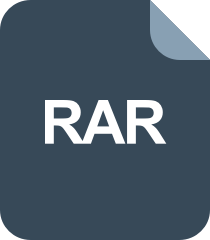
Nordic52832dfu升级keil编译缺少的uECC.h和micro_ecc_lib_nrf52.lib相关文件。
将micro-ecc拷入nRF5_SDK_14.2.0_17b948a\external\micro-ecc,然后将micro_ecc_lib_nrf52.lib复制到nRF5_SDK_14.2.0_17b948a\external\micro-ecc\nrf52hf_keil\armgcc和nRF5_SDK_14.2.0_17b948a\external\micro-ecc\nrf52nf_keil\armgcc文件下即可。
重新编译文件nRF5_SDK_14.2.0_17b948a\examples\dfu\bootloader_secure_serial\pca10040\s132\arm5_no_packs。
将micro-ecc拷入nRF5_SDK_14.2.0_17b948a\external\micro-ecc,然后将micro_ecc_lib_nrf52.lib复制到nRF5_SDK_14.2.0_17b948a\external\micro-ecc\nrf52hf_keil\armgcc和nRF5_SDK_14.2.0_17b948a\external\micro-ecc\nrf52nf_keil\armgcc文件下即可。
重新编译文件nRF5_SDK_14.2.0_17b948a\examples\dfu\bootloader_secure_serial\pca10040\s132\arm5_no_packs。
2025/11/29 14:29:13
140KB
1

简介:
PuTTY,一个强大的远程连接工具PuTTY是一个广泛使用的开源软件,主要功能是提供终端模拟器,支持多种网络协议,包括SSH(Secure Shell)、Telnet、Rlogin和原始的TCP套接字连接。
PuTTY以其小巧、免费且跨平台的特点,深受IT专业人员和爱好者的喜爱。
在本文中,我们将深入探讨PuTTY的功能、用途以及如何使用它作为优秀的文件上传工具。
1. PuTTY的基础功能PuTTY的核心功能是作为终端模拟器,让用户能够通过命令行界面与远程服务器进行交互。
它支持Windows、Linux和Mac OS等操作系统,可以连接到各种类型的服务器,如Unix、Linux和嵌入式设备。
PuTTY提供了一种安全的加密方式来保护用户的数据,使得远程登录更加安全。
2. SSH连接PuTTY的SSH支持是其最常用的功能之一。
SSH是一种安全的网络协议,用于在网络中建立加密连接,常用于远程登录。
通过PuTTY,用户可以设置服务器地址、端口号、用户名和密码,然后创建一个安全的SSH连接,进行远程管理和维护工作。
3. 文件传输虽然PuTTY本身并不直接包含文件上传功能,但通过集成第三方工具如PSCP(PuTTY Secure Copy)或PSFTP(PuTTY Secure File Transfer Protocol),用户可以实现文件的上传和下载。
PSCP类似于经典的FTP工具,而PSFTP则提供了SFTP(Secure File Transfer Protocol)支持,这两种工具都基于SSH,确保了文件传输的安全性。
4. 配置选项PuTTY提供了丰富的配置选项,允许用户根据自己的需求定制会话。
例如,你可以保存特定服务器的连接设置,设置字体类型和大小,调整终端颜色方案,甚至启用X11转发,将图形应用程序从远程服务器显示在本地机器上。
5. PuTTY的安全性PuTTY强调安全性,支持公钥认证,这是一种更安全的身份验证方式,比传统的密码认证更为可靠。
用户可以生成SSH密钥对,并将公钥存放在远程服务器上,这样每次连接时只需输入私钥的密码即可,有效防止了密码被窃取的风险。
6. PuTTY家族工具除了基本的PuTTY之外,还有许多与其相关的工具。
例如,PuTTYgen用于生成SSH密钥对;
Plink是PuTTY的命令行版本,可以在脚本中使用;
Pageant是PuTTY的密钥管理器,可帮助管理多个SSH密钥。
7. 故障排查和优化在使用PuTTY过程中,可能会遇到连接问题,如超时、断开连接等。
PuTTY提供详细的日志记录功能,可以帮助用户诊断并解决这些问题。
此外,还可以通过调整连接参数,如窗口缓冲区大小、数据包大小等,来优化连接性能。
8. PuTTY与其他工具的集成PuTTY可以与许多其他开发工具和IDE集成,如Visual Studio Code、Eclipse等,方便开发者在IDE内部直接通过PuTTY进行远程开发和调试。
PuTTY作为一个优秀的远程连接工具,不仅满足了基础的SSH登录需求,还通过其丰富的功能和扩展性,为用户提供了一整套安全、便捷的远程访问解决方案。
无论是日常的系统管理,还是开发调试,PuTTY都是一个值得信赖的选择。
PuTTY,一个强大的远程连接工具PuTTY是一个广泛使用的开源软件,主要功能是提供终端模拟器,支持多种网络协议,包括SSH(Secure Shell)、Telnet、Rlogin和原始的TCP套接字连接。
PuTTY以其小巧、免费且跨平台的特点,深受IT专业人员和爱好者的喜爱。
在本文中,我们将深入探讨PuTTY的功能、用途以及如何使用它作为优秀的文件上传工具。
1. PuTTY的基础功能PuTTY的核心功能是作为终端模拟器,让用户能够通过命令行界面与远程服务器进行交互。
它支持Windows、Linux和Mac OS等操作系统,可以连接到各种类型的服务器,如Unix、Linux和嵌入式设备。
PuTTY提供了一种安全的加密方式来保护用户的数据,使得远程登录更加安全。
2. SSH连接PuTTY的SSH支持是其最常用的功能之一。
SSH是一种安全的网络协议,用于在网络中建立加密连接,常用于远程登录。
通过PuTTY,用户可以设置服务器地址、端口号、用户名和密码,然后创建一个安全的SSH连接,进行远程管理和维护工作。
3. 文件传输虽然PuTTY本身并不直接包含文件上传功能,但通过集成第三方工具如PSCP(PuTTY Secure Copy)或PSFTP(PuTTY Secure File Transfer Protocol),用户可以实现文件的上传和下载。
PSCP类似于经典的FTP工具,而PSFTP则提供了SFTP(Secure File Transfer Protocol)支持,这两种工具都基于SSH,确保了文件传输的安全性。
4. 配置选项PuTTY提供了丰富的配置选项,允许用户根据自己的需求定制会话。
例如,你可以保存特定服务器的连接设置,设置字体类型和大小,调整终端颜色方案,甚至启用X11转发,将图形应用程序从远程服务器显示在本地机器上。
5. PuTTY的安全性PuTTY强调安全性,支持公钥认证,这是一种更安全的身份验证方式,比传统的密码认证更为可靠。
用户可以生成SSH密钥对,并将公钥存放在远程服务器上,这样每次连接时只需输入私钥的密码即可,有效防止了密码被窃取的风险。
6. PuTTY家族工具除了基本的PuTTY之外,还有许多与其相关的工具。
例如,PuTTYgen用于生成SSH密钥对;
Plink是PuTTY的命令行版本,可以在脚本中使用;
Pageant是PuTTY的密钥管理器,可帮助管理多个SSH密钥。
7. 故障排查和优化在使用PuTTY过程中,可能会遇到连接问题,如超时、断开连接等。
PuTTY提供详细的日志记录功能,可以帮助用户诊断并解决这些问题。
此外,还可以通过调整连接参数,如窗口缓冲区大小、数据包大小等,来优化连接性能。
8. PuTTY与其他工具的集成PuTTY可以与许多其他开发工具和IDE集成,如Visual Studio Code、Eclipse等,方便开发者在IDE内部直接通过PuTTY进行远程开发和调试。
PuTTY作为一个优秀的远程连接工具,不仅满足了基础的SSH登录需求,还通过其丰富的功能和扩展性,为用户提供了一整套安全、便捷的远程访问解决方案。
无论是日常的系统管理,还是开发调试,PuTTY都是一个值得信赖的选择。
2025/6/15 19:51:57
266KB
1

三星官方关于exynos4412的启动流程详细分析应用手册,还有部分BL1和BL2的代码实现该过程。
2025/1/2 1:31:17
1.12MB
1

用户表(user)UID唯一自增IDUSER_ID用户名USER_NAME用户真实姓名USER_NAME_INDEX用户姓名索引BYNAME登录名USEING_KEY使用USBKEY登录USING_FINGER使用指纹验证PASSWORD用户密码KEY_SN绑定USBKey序列号SECURE_KEY_SN动态密码卡号USER_PRIV角色编号USER_PRIV_NO角色排序号USER_PRIV_NAME角色名称POST_PRIV管理范围POST_DEPT管理范围指定部门DEPT_ID部门IDDEPT_ID_OTHER辅助部门LEAVE_DEPT离职部门IDSEX性别BIRTHDAY生日IS_LUNAR是否农历(1-是,0-否)TEL_NO_DEPT工作电话
2024/10/25 10:14:48
125KB
1

官方对Istio的介绍浓缩成了一句话:Anopenplatformtoconnect,secure,controlandobserveservices.翻译过来,就是”连接、安全加固、控制和观察服务的开放平台“。
开放平台就是指它本身是开源的,服务对应的是微服务,也可以粗略地理解为单个应用。
中间的四个动词就是Istio的主要功能,官方也各有一句话的说明。
这里再阐释一下:连接(Connect):智能控制服务之间的调用流量,能够实现灰度升级、AB测试和红黑部署等功能安全加固(Secure):自动为服务之间的调用提供认证、授权和加密。
控制(Control):应用用户定义的policy,保证资源在消费者
开放平台就是指它本身是开源的,服务对应的是微服务,也可以粗略地理解为单个应用。
中间的四个动词就是Istio的主要功能,官方也各有一句话的说明。
这里再阐释一下:连接(Connect):智能控制服务之间的调用流量,能够实现灰度升级、AB测试和红黑部署等功能安全加固(Secure):自动为服务之间的调用提供认证、授权和加密。
控制(Control):应用用户定义的policy,保证资源在消费者
2024/9/13 14:06:38
477KB
1

ElementsofProgrammingprovidesadifferentunderstandingofprogrammingthanispresentedelsewhere.Itsmajorpremiseisthatpracticalprogramming,likeotherareasofscienceandengineering,mustbebasedonasolidmathematicalfoundation.Thebookshowsthatalgorithmsimplementedinarealprogramminglanguage,suchasC++,canoperateinthemostgeneralmathematicalsetting.Forexample,thefastexponentiationalgorithmisdefinedtoworkwithanyassociativeoperation.Usingabstractalgorithmsleadstoefficient,reliable,secure,andeconomicalsoftware.Thisisnotaneasybook.Norisitacompilationoftipsandtricksforincrementalimprovementsinyourprogrammingskills.Thebook’svalueismorefundamentaland,ultimately,morecriticalforinsightintoprogramming.Tobenefitfully,youwillneedtoworkthroughitfrombeginningtoend,readingthecode,provingthelemmas,anddoingtheexercises.Whenfinished,youwillseehowtheapplicationofthedeductivemethodtoyourprogramsassuresthatyoursystem’ssoftwarecomponentswillworktogetherandbehaveastheymust.Thebookpresentsanumberofalgorithmsandrequirementsfortypesonwhichtheyaredefined.Thecodeforthesedescriptions—alsoavailableontheWeb—iswritteninasmallsubsetofC++meanttobeaccessibletoanyexperiencedprogrammer.ThissubsetisdefinedinaspeciallanguageappendixcoauthoredbySeanParentandBjarneStroustrup.Whetheryouareasoftwaredeveloper,oranyotherprofessionalforwhomprogrammingisanimportantactivity,oracommittedstudent,youwillcometounderstandwhatthebook’sexperiencedauthorshavebeenteachinganddemonstratingforyears—thatmathematicsisgoodforprogramming,andthattheoryisgoodforpractice.
2024/8/2 2:36:29
3.21MB
1

绝对值得珍藏1、PowerTCPZipCompressionToolv1.8.5注册机Keygen一款应用程序加密软件,能够让你对你的应用程序添加解压和自解压功能。
2、PowerTCPFTPToolv1.8.6注册机Keygen开发编程插件,使用FTPControl只需要调用一个函数就可以在您的客户端和任何FTP服务器端增加FTP传输文件的功能,可同步方式或异步方式。
3、PowerTCPEmulationToolv1.8.4注册机Keygen一个用于Internet应用程序设计的ActiveX控件组。
可以用VT和Telnet控件在应用程序中实现中断仿真。
高级的图形字体、高级的打印能力使它能适应各种苛刻的应用程序的要求。
4、PowerTCPWinsockToolv2.83注册机Keygen非常简单易用的ActiveXControls。
它应用在基于Internet应用程序开发中。
帮您建立应用程序模块,控制高级缓存管理等5、PowerTCPTelnetToolv1.83注册机KeygenTheTelnet控件用来管理远程登录、重新登录、命令解释等功能的实现。
化减它们使用和终止的确认方法。
6、PowerTCPMailfor.NETv2.1.4注册机KeygenPowerTCPMail是一个.NET控件,提供邮件服务功能,一个针对普通应用,一个针对Secure连接,带有加密和认证功能,通过设定一些属性你可以在不带SSL和带SSL之间很容易切换。
7、PowerTCPSecureMailfor.NETv1.0.5注册机KeygenPowerTCPMail是一个.NET控件,提供邮件服务功能,一个针对普通应用,一个针对Secure连接,带有加密和认证功能,通过设定一些属性你可以在不带SSL和带SSL之间很容易切换。
8、PowerTCPWebServerToolv1.6.1注册机Keygen电子书:《ApressExcel数据透视表的解救之道:一种解决问题的方法》9、PowerTCPZipCompressionfor.NETv1.0.0注册机KeygenFindDoubleFiles是一款可快速搜寻和删除系统内重复文件的软件。
可容易地扫描出在系统中相同文件和快速地去除你想要删除的文件。
10、PowerTCPWebEnterpriseToolv1.8.2注册机Keygen使用WebActiveXControl可以通过HTTP和HTTPS协议同WebServersworld-wide通信。
11、PowerTCPWebToolv1.82注册机Keygen使用WebActiveXControl可以通过HTTP和HTTPS协议同WebServersworld-wide通信。
12、PowerTCPSecureFTPfor.NETv2.3.1注册机KeygenPowerTCPFTPfor.NET是一个不错的.NET控件。
支持大文件的上传和下传。
支持wild-card传输和整个目录的传输。
可以配合Novell5.0FTPServer一起使用...13、PowerTCPFTPfor.NETv2.3.1注册机Keygen.NET的FTP控件,通过SSL加密,支持大文件的上传和下传。
支持wild-card传输和整个目录的传输。
可以配合Novell5.0FTPServer一起使用。
14、PowerTCPMailToolv2.9.1注册机KeygenEmail发送接收的控件包,适于开发email相关的ASP及Windows应用程序。
用SMTP控件发送Email,用POP控件接收Email,用IMAP控件管理服务器上的Mail。
而...15、PowerTCPZipLiteCompressionToolv1.8.2注册机KeygenPowerTCPZipLiteCompressionTool可以让你非常简单的在你的应用程序中加入高速,可靠的ZIP文件的压缩和解压缩功能.QuickZip和QuickUnzip这两个方法可以...
2、PowerTCPFTPToolv1.8.6注册机Keygen开发编程插件,使用FTPControl只需要调用一个函数就可以在您的客户端和任何FTP服务器端增加FTP传输文件的功能,可同步方式或异步方式。
3、PowerTCPEmulationToolv1.8.4注册机Keygen一个用于Internet应用程序设计的ActiveX控件组。
可以用VT和Telnet控件在应用程序中实现中断仿真。
高级的图形字体、高级的打印能力使它能适应各种苛刻的应用程序的要求。
4、PowerTCPWinsockToolv2.83注册机Keygen非常简单易用的ActiveXControls。
它应用在基于Internet应用程序开发中。
帮您建立应用程序模块,控制高级缓存管理等5、PowerTCPTelnetToolv1.83注册机KeygenTheTelnet控件用来管理远程登录、重新登录、命令解释等功能的实现。
化减它们使用和终止的确认方法。
6、PowerTCPMailfor.NETv2.1.4注册机KeygenPowerTCPMail是一个.NET控件,提供邮件服务功能,一个针对普通应用,一个针对Secure连接,带有加密和认证功能,通过设定一些属性你可以在不带SSL和带SSL之间很容易切换。
7、PowerTCPSecureMailfor.NETv1.0.5注册机KeygenPowerTCPMail是一个.NET控件,提供邮件服务功能,一个针对普通应用,一个针对Secure连接,带有加密和认证功能,通过设定一些属性你可以在不带SSL和带SSL之间很容易切换。
8、PowerTCPWebServerToolv1.6.1注册机Keygen电子书:《ApressExcel数据透视表的解救之道:一种解决问题的方法》9、PowerTCPZipCompressionfor.NETv1.0.0注册机KeygenFindDoubleFiles是一款可快速搜寻和删除系统内重复文件的软件。
可容易地扫描出在系统中相同文件和快速地去除你想要删除的文件。
10、PowerTCPWebEnterpriseToolv1.8.2注册机Keygen使用WebActiveXControl可以通过HTTP和HTTPS协议同WebServersworld-wide通信。
11、PowerTCPWebToolv1.82注册机Keygen使用WebActiveXControl可以通过HTTP和HTTPS协议同WebServersworld-wide通信。
12、PowerTCPSecureFTPfor.NETv2.3.1注册机KeygenPowerTCPFTPfor.NET是一个不错的.NET控件。
支持大文件的上传和下传。
支持wild-card传输和整个目录的传输。
可以配合Novell5.0FTPServer一起使用...13、PowerTCPFTPfor.NETv2.3.1注册机Keygen.NET的FTP控件,通过SSL加密,支持大文件的上传和下传。
支持wild-card传输和整个目录的传输。
可以配合Novell5.0FTPServer一起使用。
14、PowerTCPMailToolv2.9.1注册机KeygenEmail发送接收的控件包,适于开发email相关的ASP及Windows应用程序。
用SMTP控件发送Email,用POP控件接收Email,用IMAP控件管理服务器上的Mail。
而...15、PowerTCPZipLiteCompressionToolv1.8.2注册机KeygenPowerTCPZipLiteCompressionTool可以让你非常简单的在你的应用程序中加入高速,可靠的ZIP文件的压缩和解压缩功能.QuickZip和QuickUnzip这两个方法可以...
2024/5/24 16:17:01
314KB
1

/**这是修改过后的fis.c模糊推理系统库函数,可以移植C/C++环境使用,在VS2010的MFC环境经过测试*1、将fis.c文件拷贝到项目中;
*2、修改VS2010的配置属性,项目->属性->C/C++->预处理器->预处理器定义,添加*_CRT_SECURE_NO_WARNINGS*3、在【解决方案资源管理器】中选中fis.c文件,单击右键的属性*【配置属性】->【常规】->【项类型】,配置为【C/C++标头】*4、如果是C语言文件(*.c)使用*#include"fis.c"*包含接口库文件;
*5、如果是C++文件,使用*extern"C"{*#include"fis.c"*}*包含库文件。
*祝你使用愉快!*hemmingway2013/1/2*/
*2、修改VS2010的配置属性,项目->属性->C/C++->预处理器->预处理器定义,添加*_CRT_SECURE_NO_WARNINGS*3、在【解决方案资源管理器】中选中fis.c文件,单击右键的属性*【配置属性】->【常规】->【项类型】,配置为【C/C++标头】*4、如果是C语言文件(*.c)使用*#include"fis.c"*包含接口库文件;
*5、如果是C++文件,使用*extern"C"{*#include"fis.c"*}*包含库文件。
*祝你使用愉快!*hemmingway2013/1/2*/
2024/5/17 2:49:01
14KB
1

EssentialC#7.0,6thEdition,epub版本,英文TheComprehensive,ExpertGuidetoC#LanguageProgramming.EssentialC#7.0isawell-organized,no-fluffguidetoC#7.0forprogrammersatalllevelsofexperience.ReflectingC#7.0featuresandmodernprogrammingpatterns,itwillhelpyouwritecodethat’ssimple,powerful,robust,secure,andmaintainable.
2023/7/22 18:36:09
11MB
1

vs2013编写的MFC串口通信程序,支持modbus协议,如遇到C4996警告,请右击工程-属性-配置属性-C/C++-命令行命令行增加/D_CRT_SECURE_NO_WARNINGS可发送和接送串口数据,zip内含一个串口大师调试工具,本人已用其实现获取一个漫反射光电开关经过开关采集模块和485转usb模块,转换到电脑串口信号;
如有其它问题,请留言征询!
如有其它问题,请留言征询!
2016/7/18 17:33:03
58.05MB
1

在日常工作中,钉钉打卡成了我生活中不可或缺的一部分。然而,有时候这个看似简单的任务却给我带来了不少烦恼。
每天早晚,我总是得牢记打开钉钉应用,点击"工作台",再找到"考勤打卡"进行签到。有时候因为工作忙碌,会忘记打卡,导致考勤异常,影响当月的工作评价。而且,由于我使用的是苹果手机,有时候系统更新后,钉钉的某些功能会出现异常,使得打卡变得更加麻烦。
另外,我的家人使用的是安卓手机,他们也经常抱怨钉钉打卡的繁琐。尤其是对于那些不太熟悉手机操作的长辈来说,每次打卡都是一次挑战。他们总是担心自己会操作失误,导致打卡失败。
为了解决这些烦恼,我开始思考是否可以通过编写一个全自动化脚本来实现钉钉打卡。经过一段时间的摸索和学习,我终于成功编写出了一个适用于苹果和安卓系统的钉钉打卡脚本。
2024-04-09 15:03
15KB